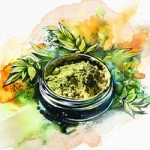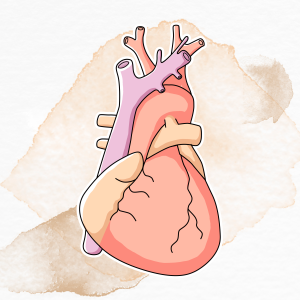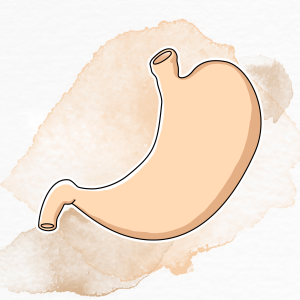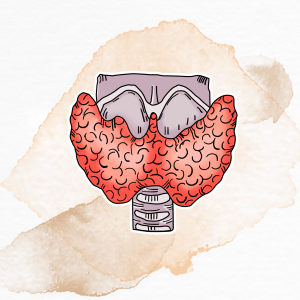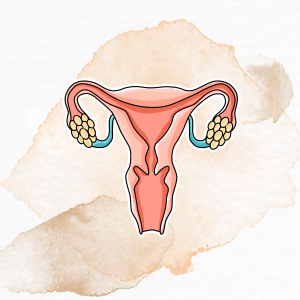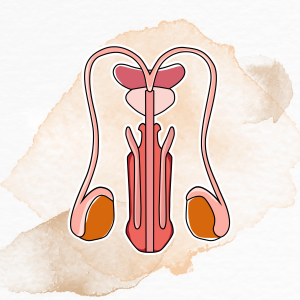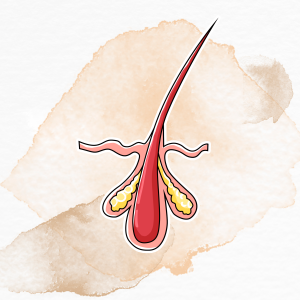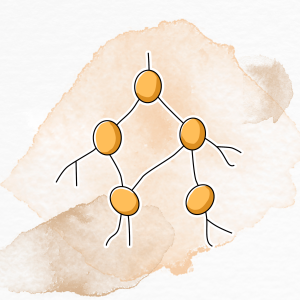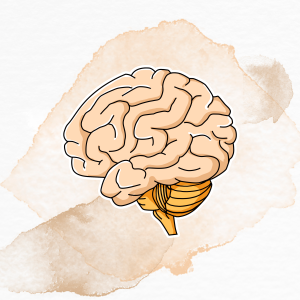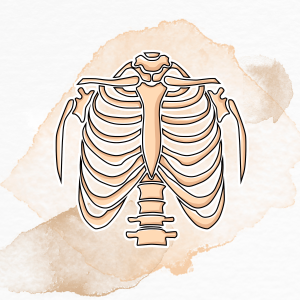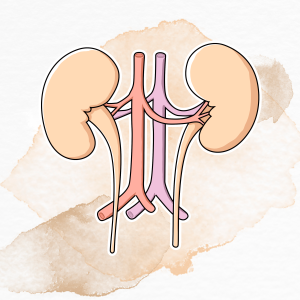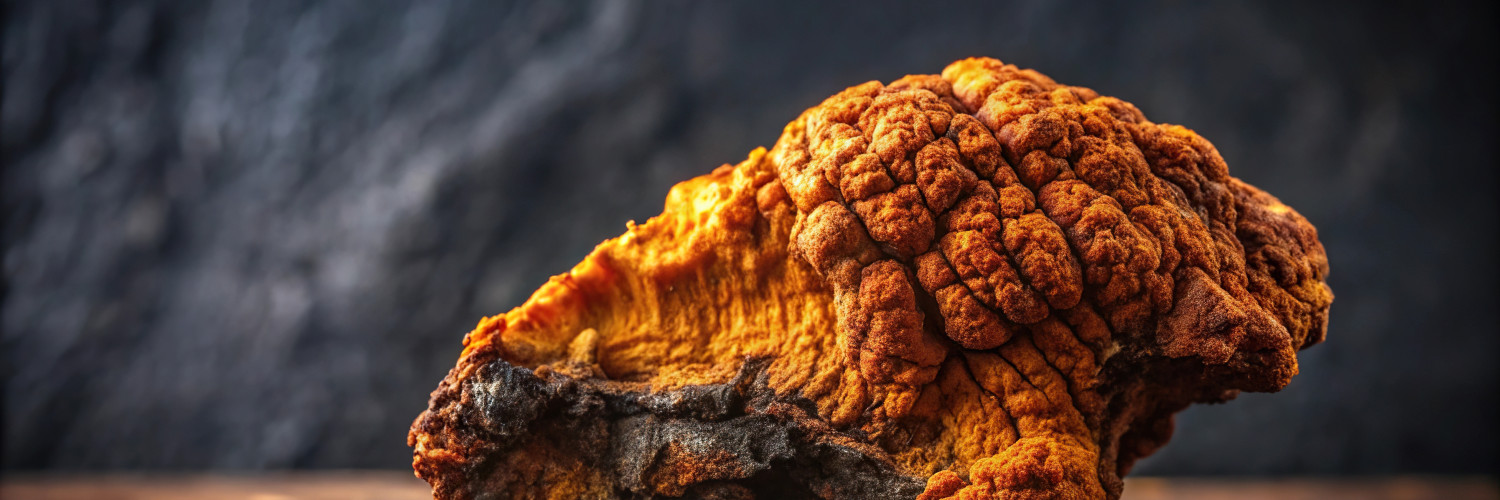
Botanical Characteristics
Chaga, scientifically known as Inonotus obliquus, is a unique fungus that primarily grows on birch trees. It is easily recognizable by its irregular, dark, and crusty exterior, which resembles burnt charcoal. Inside, it boasts a rusty yellow-brown color with a soft, cork-like texture. Unlike other mushrooms with gills or pores, Chaga's fruiting body is composed of a dense mass of mycelium, giving it a distinctive appearance and texture.
Chemical Composition
Chaga is rich in various bioactive compounds that contribute to its beneficial properties. Its chemical composition includes:
Polysaccharides: Particularly beta-glucans, which are known for their immune-supporting effects.
Antioxidants: High levels of superoxide dismutase (SOD) and other polyphenols that help combat oxidative stress.
Betulinic Acid: Derived from the birch trees it grows on, known for its beneficial properties.
Sterols: Including lanosterol and inotodiol, which support various bodily functions.
Habitat and Growth Features
Chaga predominantly thrives in the cold climates of the Northern Hemisphere. It is commonly found in regions like Siberia, Canada, Alaska, and northern parts of the United States. This fungus prefers birch trees but can also grow on other hardwoods like alder, beech, and oak. Chaga typically appears as a sterile conk, which is a mass of mycelium that breaks through the bark of the host tree. It takes several years to mature, often forming in response to injury or stress on the tree.
History of Usage
Chaga has a rich history of use in traditional medicine, particularly among Siberian, Russian, and other Northern European cultures. For centuries, it has been utilized as a natural supplement to support various bodily functions. The indigenous people of Siberia revered Chaga as a powerful gift of nature, using it in teas and tinctures for its rejuvenating properties.
Chaga gained prominence as a folk remedy during the 12th century and was used as a substitute for traditional teas. The fungus was often consumed to support overall wellness and was believed to promote longevity and vitality.
Body Systems Supported by Chaga Mushroom:
- Immune System
- Digestive System
- Cardiovascular System
- Endocrine System
- Nervous System
- Integumentary System (Skin)
- Respiratory System
Chaga Substances and Immune System Support:
Chaga mushroom (Inonotus obliquus) is renowned for its potent immune-supporting properties, attributed to its rich composition of bioactive compounds. Central to Chaga's immune-enhancing effects are its high concentrations of beta-glucans and polysaccharides, which play a pivotal role in modulating and stimulating the immune response. These complex carbohydrates activate immune cells such as macrophages, natural killer cells, and lymphocytes, thereby enhancing the body's ability to detect and respond to foreign pathogens. Additionally, Chaga is abundant in antioxidants, including superoxide dismutase (SOD) and polyphenols, which protect immune cells from oxidative stress and damage. The presence of betulinic acid and sterols further contributes to Chaga's immune-supportive functions by promoting the production of cytokines and other signaling molecules essential for a robust immune response. Collectively, these compounds work synergistically to enhance the body's natural defense mechanisms, making Chaga an invaluable supplement for maintaining and strengthening immune health.
Scientific Articles on the Topic:
https://www.ncbi.nlm.nih.gov/pmc/articles/PMC3774877/
https://www.ncbi.nlm.nih.gov/pmc/articles/PMC8124789/
https://www.mdpi.com/2076-3417/10/17/5774
Chaga Substances and Digestive System Support:
Chaga mushroom (Inonotus obliquus) offers notable benefits for the digestive system, thanks to its diverse array of bioactive compounds. The polysaccharides and beta-glucans present in Chaga are known to promote a healthy balance of gut microbiota, which is essential for optimal digestive function. These compounds act as prebiotics, fostering the growth of beneficial bacteria in the gut, thereby enhancing nutrient absorption and overall digestive health. Additionally, Chaga's anti-inflammatory properties help soothe the digestive tract, reducing inflammation and irritation that can disrupt normal digestive processes. The antioxidants found in Chaga, including polyphenols and superoxide dismutase (SOD), protect the digestive system from oxidative stress and cellular damage, ensuring the integrity of the digestive lining. Furthermore, Chaga's adaptogenic qualities support the digestive system by helping the body manage stress, a common factor that can negatively impact digestive function. Overall, the bioactive substances in Chaga work together to support a healthy and efficient digestive system, contributing to improved nutrient assimilation and gastrointestinal comfort.
Scientific Articles on the Topic:
https://www.ncbi.nlm.nih.gov/pmc/articles/PMC10282762/
https://www.ncbi.nlm.nih.gov/pmc/articles/PMC5618583/
Chaga Substances and Cardiovascular System Support:
Chaga mushroom (Inonotus obliquus) offers substantial benefits for the cardiovascular system, largely due to its rich composition of bioactive compounds. Central to Chaga's cardiovascular support are its high levels of antioxidants, such as polyphenols and superoxide dismutase (SOD), which combat oxidative stress and protect cardiovascular tissues from damage. These antioxidants help maintain healthy endothelial function, crucial for proper blood flow and vascular health. Additionally, Chaga contains betulinic acid, derived from the birch trees it grows on, which supports healthy cholesterol levels by aiding in lipid metabolism and reducing the buildup of arterial plaque. The polysaccharides and beta-glucans in Chaga further contribute to cardiovascular wellness by enhancing the body's response to inflammation, a key factor in cardiovascular conditions. Furthermore, Chaga's adaptogenic properties assist in regulating stress, which can have a direct impact on heart health and blood pressure. Together, these bioactive substances in Chaga work synergistically to support and maintain cardiovascular health, promoting optimal heart function and overall circulatory system integrity.
Scientific Articles on the Topic:
https://www.ncbi.nlm.nih.gov/pmc/articles/PMC6706056/
Chaga Substances and Endocrine System Support:
Chaga mushroom (Inonotus obliquus) is celebrated for its supportive effects on the endocrine system, owing to its rich composition of adaptogens and bioactive compounds. These substances help regulate and balance hormone production and secretion, crucial for maintaining endocrine health. The polysaccharides and beta-glucans in Chaga enhance the body's ability to adapt to stress, a significant factor that can disrupt endocrine function. By supporting the adrenal glands, Chaga helps manage the production of stress hormones such as cortisol, promoting overall hormonal balance. Additionally, the antioxidants in Chaga, including polyphenols and superoxide dismutase (SOD), protect endocrine tissues from oxidative damage, ensuring the proper functioning of glands such as the thyroid and pancreas. Betulinic acid and sterols found in Chaga further contribute to hormonal health by supporting the synthesis and regulation of various hormones. Overall, the bioactive compounds in Chaga work together to enhance the resilience and functionality of the endocrine system, promoting a balanced and well-regulated hormonal environment.
Scientific Articles on the Topic:
https://www.tandfonline.com/doi/full/10.1080/21501203.2023.2260408
https://www.ncbi.nlm.nih.gov/pmc/articles/PMC7830770/
https://www.ncbi.nlm.nih.gov/pmc/articles/PMC10002342/
Chaga Substances and Nervous System Support:
Chaga mushroom (Inonotus obliquus) is known for its beneficial effects on the nervous system, attributed to its rich array of bioactive compounds. Central to Chaga's neuroprotective properties are its high levels of antioxidants, such as polyphenols and superoxide dismutase (SOD), which help protect neurons from oxidative stress and damage. These antioxidants play a crucial role in maintaining cognitive function and promoting overall brain health. Additionally, Chaga contains betulinic acid and sterols, which support the nervous system by enhancing the production and regulation of neurotransmitters, essential for communication between nerve cells. The polysaccharides in Chaga further contribute to nervous system support by promoting a balanced response to stress and inflammation, factors that can adversely affect neural health. Chaga's adaptogenic properties also aid in reducing stress and anxiety, which are known to impact cognitive function negatively. Together, these bioactive substances in Chaga work synergistically to support and protect the nervous system, promoting mental clarity, focus, and overall neural well-being.
Scientific Articles on the Topic:
https://www.sciencedirect.com/science/article/pii/S2667142523001148
Chaga Substances and Skin Support:
Chaga mushroom (Inonotus obliquus) offers notable benefits for the integumentary system, which includes the skin, hair, and nails, primarily due to its rich content of bioactive compounds. The high levels of antioxidants in Chaga, such as polyphenols and superoxide dismutase (SOD), play a crucial role in protecting the skin from oxidative stress and environmental damage, thereby promoting a youthful and healthy appearance. These antioxidants help neutralize free radicals, reducing the signs of aging and supporting skin elasticity. Additionally, Chaga contains betulinic acid and other triterpenoids, which possess anti-inflammatory properties that help soothe irritated skin and support the healing of minor wounds and blemishes. The polysaccharides in Chaga further enhance skin health by maintaining hydration and promoting a healthy skin barrier, which is essential for protecting against external pollutants and pathogens. Chaga's adaptogenic properties also help the body manage stress, which can have a direct impact on skin health, reducing stress-related skin issues. Collectively, these bioactive substances in Chaga work synergistically to support and enhance the health and appearance of the integumentary system, promoting overall skin vitality and resilience.
Scientific Articles on the Topic:
https://www.ncbi.nlm.nih.gov/pmc/articles/PMC8657738/
https://www.ncbi.nlm.nih.gov/pmc/articles/PMC10597809/
Chaga Substances and Respiratory Support:
Chaga mushroom (Inonotus obliquus) provides significant support for the respiratory system, attributed to its diverse range of bioactive compounds. Chaga is rich in antioxidants, such as polyphenols and superoxide dismutase (SOD), which help protect respiratory tissues from oxidative stress and environmental pollutants. These antioxidants play a crucial role in maintaining the integrity and function of the respiratory tract. Additionally, Chaga's anti-inflammatory properties, derived from compounds like betulinic acid and triterpenoids, help soothe and reduce inflammation in the respiratory system, supporting clear airways and promoting comfortable breathing. The polysaccharides in Chaga further contribute to respiratory health by enhancing the body's immune response, aiding in the defense against respiratory pathogens and maintaining overall respiratory function. Chaga's adaptogenic properties also assist in managing stress, which can impact respiratory health by exacerbating conditions. Together, these bioactive substances in Chaga work synergistically to support and protect the respiratory system, promoting healthy lung function and overall respiratory well-being.
Scientific Articles on the Topic:
https://www.ncbi.nlm.nih.gov/pmc/articles/PMC8988443/
Usage Guidelines for Chaga Mushroom:
Recommended Dosage:
The recommended dosage for Chaga mushroom can vary depending on the form in which it is consumed (powder, tincture, capsule, or tea). Here are general guidelines:
Powder: 1 to 2 teaspoons (2 to 4 grams) per day.
Tincture: 1 to 2 dropperfuls (approximately 1 to 2 milliliters) per day.
Capsule: Follow the manufacturer’s instructions, typically 1 to 2 capsules (500 to 1000 milligrams) per day.
Tea: 1 cup of Chaga tea, prepared by steeping 1 to 2 teaspoons of Chaga chunks or powder in hot water for 15-20 minutes.
Best Time to Take Chaga:
Chaga can be taken at any time of the day; however, here are some considerations:
Morning: Taking Chaga in the morning can provide an energy boost and support overall vitality throughout the day.
Afternoon: Chaga can be consumed in the afternoon to combat the midday slump and sustain energy levels.
Evening: Some people prefer taking Chaga in the evening for its adaptogenic properties that help manage stress and promote relaxation.
Before or After Meals:
Chaga can be taken either before or after meals. However, consuming it before meals may enhance its absorption and effectiveness. If you experience any digestive discomfort when taking it on an empty stomach, try taking it with or after meals.
Contraindications:
While Chaga is generally considered safe for most people, there are certain situations where caution is advised:
Pregnancy and Breastfeeding: Consult a healthcare provider before using Chaga during pregnancy or breastfeeding.
Autoimmune Diseases: Since Chaga can stimulate the immune system, individuals with autoimmune conditions should consult a healthcare provider before use.
Diabetes: Chaga may affect blood sugar levels. People with diabetes should monitor their blood sugar closely and consult a healthcare provider before using Chaga.
Bleeding Disorders: Chaga contains compounds that may affect blood clotting. Those with bleeding disorders or on blood-thinning medications should avoid Chaga or consult a healthcare provider.
Surgery: Discontinue use of Chaga at least two weeks before any scheduled surgery to avoid potential complications related to blood clotting.
Interactions with Other Products or Substances:
Anticoagulants and Antiplatelet Drugs: Chaga may enhance the effects of these medications, increasing the risk of bleeding.
Insulin and Other Antidiabetic Drugs: Chaga may lower blood sugar levels, potentially enhancing the effects of these medications and increasing the risk of hypoglycemia.
Immunosuppressants: Chaga may interfere with the effects of immunosuppressive medications.




